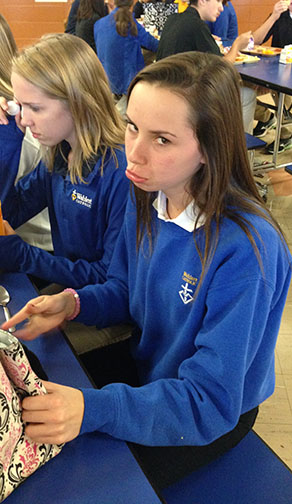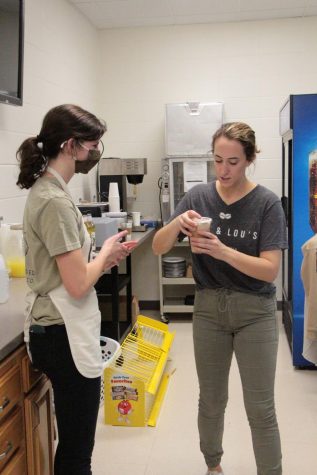Tears

The average person sheds 121 tears in his or her lifetime. Everyone cries when things don’t go his or her way, or their eyes can’t stop creating tears.
People produce tears to moisten their eyes, and when there is a foreign object that irritates them, such as an eyelash or a pencil shaving from school. For some reason, however, crying defies scientific explanation. Our tear glands create more tears than they’re supposed to due to one thing: emotion.
“Your emotions build up, and we let them out by crying,” Sophia Foy and Emma Kunnert, ‘19, said. All animals and humans cry for their basic physical needs, but as humans, we take crying to a whole new level due to emotion.
Our emotions were never meant to cause our tear glands to lacrimate or to shed tears. The limbic system within our brains produces our basic emotional drives, such as fear and anger. When the receptors and neurotransmitters in the limbic system are active, they connect to the tear glands, thus producing emotional tears, and sometimes the tears will continue to flow even when there is no need for it.
“Whenever I try to stop crying, the tears won’t stop,” Liz Wilgenbusch, ‘19, said. Tears are made of water, salts, antibodies and antibacterial enzymes. The composition of tears caused by emotion, however, differs from that of tears as a reaction to irritations, such as onion fumes, dust or allergies.
Emotional tears are composed of more protein-based hormones, such as leucine enkephalin, a natural pain killer which is suggested to be the reason why crying can make an individual feel better.
“Pain hurts. Sometimes it hurts so much that we’re afraid that it will never go away,” Gretchen Swift, ‘17, said. When we suffer through severe pain or some kind of loss, our crying times are at our highest levels. It is when our limbic systems are most active and where the receptors and neurotransmitters all go to the tear glands. That is when our tears seem to be endless, as if there is no way to end the pain.
Pain does hurt, but you can’t be sad your whole life, and you can’t let sadness and depression alter it either. We will all cry at some point in our lives, but there will be something or someone to comfort us.








